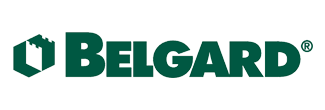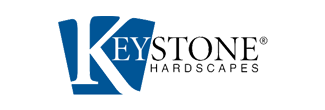Hardscaping and Paving FAQs
Two-Year Installation Warranty
ICPI Certified
Over 20 Years of Experience
Get Your Harscaping and Paving Questions Answered
- What is the difference between clay pavers and concrete pavers?
Clay paver is made with real clay that is mixed, extruded, and baked in a kiln at very high temperatures and concrete pavers are made with a special mix of concrete and color that is compacted at very high pressures in a special machine.
- What type of paver is good?
Generally, there is very little difference between pavers. The important difference is the maker of the pavers. Paving materials can vary from one manufacturer to another. The factors that make a paver perfect are its compressive strength, water absorbtion rate, and abrasion index.
- What happens if I have to do a repair job below the paving? Does it leave an unsightly patch mark?
No, that is one of the long term advantages of installing flexible paving. All interlocking paving is flexible, and it can also resist cracking. This is especially beneficial in California which has an expansive soil.
- Do you also provide any other types of specialty masonry?
Yes, our tradesmen are fully trained masonry professionals. We specialize in matching almost any material and installing it so that the repair is untraceable.
- What does interlocking paving mean?
Interlocking paving could be a misleading term. What actually constitutes interlocking is really a dynamic function containing three different components: rotational interlock (resistance to tipping), horizontal interlock (resistance to spreading), and vertical interlock (resistance to sinking). Hence, for lasting quality you need good containment, good subbase, and proper paver thickness. So thicker pavers for driveways and thinner ones for patios.
- After you're done paving the work surfaces should I seal It?
Yes, sealing protects it from leaky cars that might leave oil stains and it stays cleaner for much longer if you seal it right away before it has a chance to become stained. Remember when it's sealed it only takes a hose to clean it off. We use breathable type sealers that protect against a lot of external elements.
- What can be done to to restore ugly, old, and faded concrete?
In most cases faded concrete can be revamped by recoloring it using various tints and stains.






Share On: